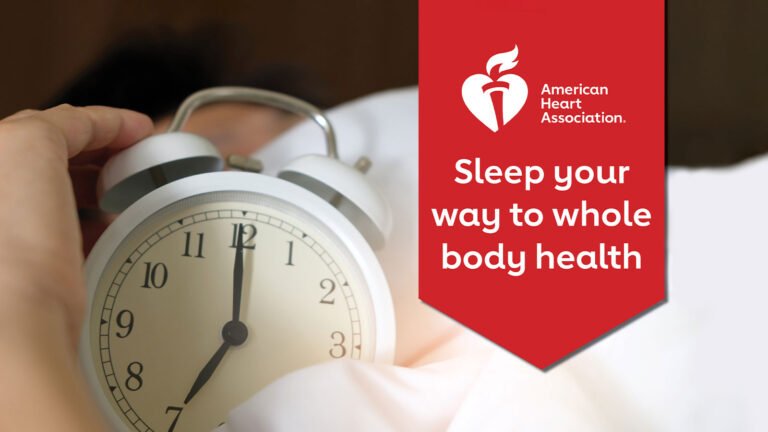Getting a good night’s sleep each night is essential for cardiovascular health. Adults should aim for an average of 7 to 9 hours, while infants and children may need more time depending on their age. The ideal daily sleep range for children under the age of 5 is 10 to 16 hours per 24 hours. For ages 6 to 12, 9 to 12 hours. For ages 13 to 18 he has 8 to 10 hours.
Cardiovascular disease is the number one cause of death worldwide, and healthy lifestyle behaviors such as sleep and proper nutrition, as well as managing known risk factors such as blood pressure and blood sugar levels, can reduce the risk of cardiovascular disease. Research shows that most of these can be prevented.
Sleep has many benefits. Heals and repairs cells, tissues, and blood vessels. Strengthens the immune system. Improves mood and energy. This in turn leads to improved brain functions such as attention, decision making, concentration, learning, memory, reasoning, and problem solving. Sleep also reduces your risk of chronic disease.
Lack of sleep can increase your risk of:
- cardiovascular disease
- Cognitive decline and dementia
- depression
- inflammation
- High blood pressure, blood sugar (diabetes), cholesterol
- obesity
- stroke and heart attack
Research shows that maintaining consistent sleep patterns may play an important role in preventing cardiovascular disease. Also, habitual short sleep increases the likelihood of cardiovascular events. Inconsistent sleep times each night and going to bed at different times can increase your risk of a cardiovascular disease called atherosclerosis, which causes plaque to build up in your arteries.
sleep data
- One in three adults don’t get the recommended seven to nine hours of sleep each night.
- Lack of sleep seems to be a problem for many people. Estimates suggest that as many as 70 million American adults don’t get enough sleep on a regular basis or have sleep disorders.
- Not getting enough sleep is associated with social factors such as not having a spouse, not having a college education, and not having a well-paying job.
- Older adults are more likely to report getting enough sleep than younger adults.
- Native Hawaiians/Pacific Islanders and Black people are the least likely to get the recommended amount of sleep.
- Children need more sleep than adults, and the recommended amount is based on age, but about one in three (34.9%) sleep on average less than what experts say they need. One in two black children (50.8%) do not get the recommended amount of sleep for their age.
healthy sleep tips
- Eating a balanced diet and doing regular physical activity can help improve your sleep.
- Managing stress helps you fall asleep faster and supports a healthier night’s sleep.
- Good sleep hygiene is essential, and a light and technology-free bedroom leads to better sleep. Log off your electronic devices at least an hour before bedtime.
- Stick to a specific bedtime and wake-up time each day and keep a consistent schedule as much as possible. Set your bedtime alarm to let you know it’s time to start winding down.
- Some people may have difficulty falling asleep. Sleep experts recommend limiting the use of sleep aids. Try adding a relaxing pre-bedtime routine like meditation, reading, or journaling.
Learn more about healthy sleep and the American Heart Association’s top measures to improve and maintain cardiovascular health.


